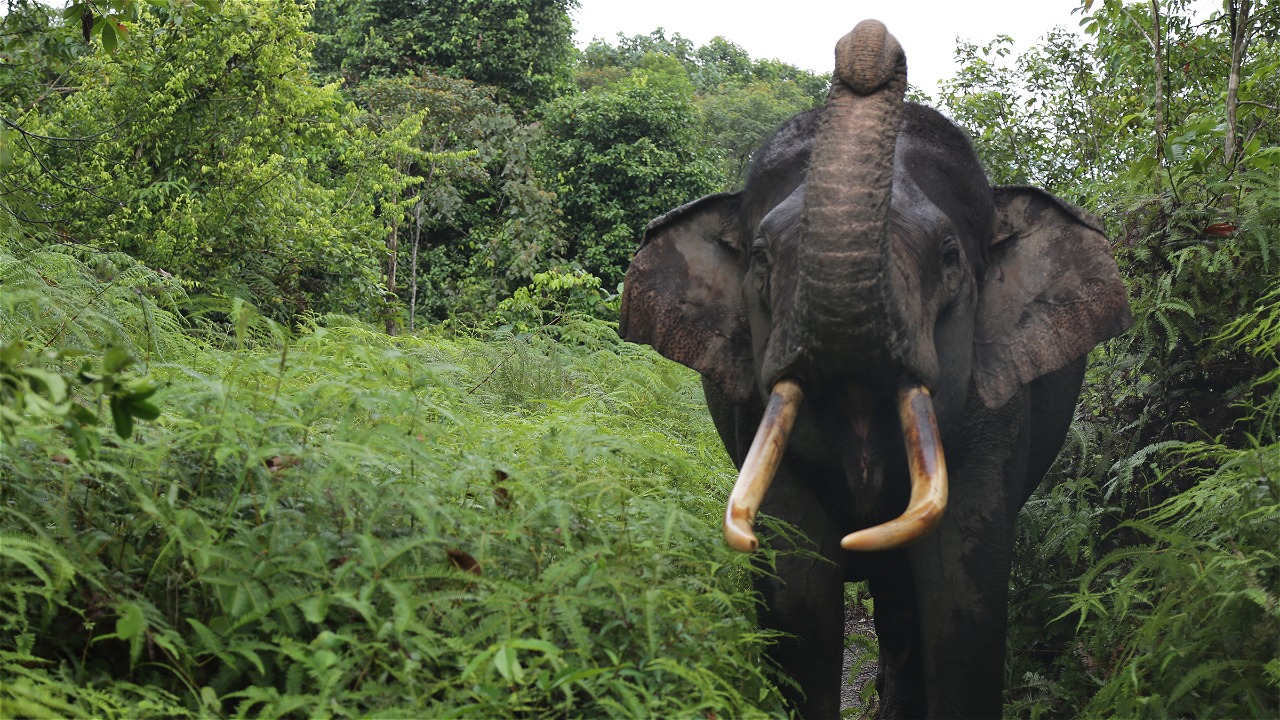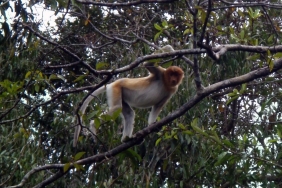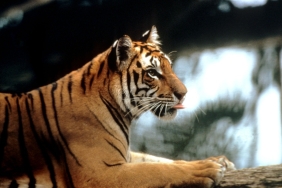TEMAN TULUS DONATES GPS COLLAR FOR SUMATRAN ELEPHANT CONSERVATION
By: Natalia Trita Agnika
In the Public Discussion "Elephant Conservation in a Changing Landscape: Molecular Techniques for Ecological Studies, Conflict Mitigation, and Uncovering Illegal Wildlife Trade"on Thursday (11/08) at the Eijkman Institute of Molecular Biology, Central Jakarta, musician Tulus shared his experiences and memories of the elephant Yongki. Despite having a song and album titled "Gajah", apparently since childhood until his work was released, Tulus had never interacted directly with elephants. Finally, the opportunity to interact directly with elephants arose during the process of making the music video for the song "Gajah". With the help of a team from WWF-Indonesia, Tulus filmed in Bukit Barisan Selatan National Park (TNBBS) in May 2014.
"The first thing that made me fall in love was when mahout (elephant handler) told me to get acquainted with Yongki first. He said the elephant would know whether our intentions were good or not," Tulus recalled. Finally, in less than 30 minutes, Tulus was on Yongki's back and the scene became the closing scene of the video clip for "Gajah". After filming, Tulus returned to Jakarta with memories of interacting with elephants tucked tightly in his heart.
In front of the discussion participants, Tulus expressed his anger and sadness when he heard the news of Yongki's death and the ivory that was taken. "On that night, I received 5 awards at Anugerah Musik Indonesia. I should have been happy, because our work was appreciated. But what happened, on that night I was angry and sad because on the same date I received an award, the news I received was that Yongki, the elephant who helped us access beautiful places that have never been touched by humans, was killed and his tusks were taken," said Tulus.
Seeing that reality, Tulus could not remain silent. He created a program called #Do Not Kill Elephants. One of his activities is to sell merchandise special edition with elephant images. Profits from the sale of these products are collected and used entirely for the procurement of location detection collars (GPS Collar) for Sumatran elephants in conservation areas.
"Currently, #Do Not Kill Elephants is running and will continue to run. And hopefully in the future it can run not only for the procurement of the GPS Collar, but so that friends who hear my work will appreciate and protect the environment," hoped Tulus while showing some of the #JanganBunuhGajah merchandise.
On that occasion, Tulus symbolically handed over the donations that had been collected from the #JanganBunuhGajah program for the procurement of GPS Collar from Teman Tulus to WWF-Indonesia for the conservation of Sumatran elephants. "In my opinion, there must be many people in this world who care about the environment. I'm sure there are a lot of them. I am also sure that if there are people who have the opportunity to interact with elephants directly, they will definitely fall in love. But perhaps, people who want to be involved in the process of conserving these animals don't know where to go," Tulus concluded.
Thank you to Teman Tulus and WWF-Indonesia supporters who have been supporting the #Do Not Kill Elephants campaign. The existence of GPS Collar in elephant conservation efforts will be very helpful, especially for tracking elephant roaming routes and anticipating conflicts between elephants and humans.
Those of you who want to get involved in Sumatran elephant conservation efforts can still join the #Don't Kill Elephants program. Your donation will be used for training to prevent conflict between elephants and humans, purchase equipment for the patrol team, medical examination equipment in case of an injured elephant, and fund the daily operations of Patrol team members.





